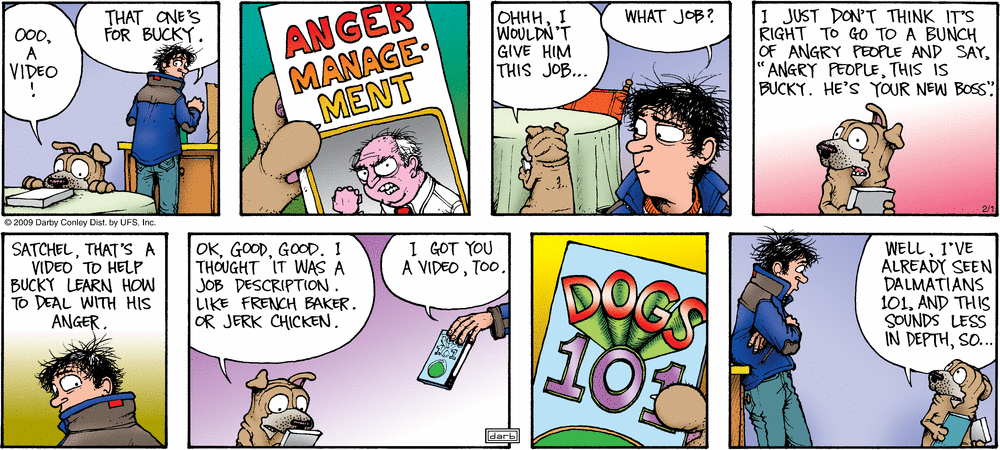Last Sunday's Get Fuzzy:

As we've often observed, the semantic relationship between the elements of English complex nominals is very variable — consider for example olive oil, hair oil, and midnight oil. But my intuition, FWIW, says that "anger management" can't mean "management of angry people" — and not just because the phrase is already taken for another meaning. (Of course Satchel, who thinks that "jerk chicken" is a job description, is an amusingly unreliable lexicographer.)
Meanwhile, in other nominal news from unreliable sources, Daniel Schaefer in the Financial Times recently warned us about a German compound noun bubble ("The German language goes long"):
At first glance, Germany has avoided the sort of bubbles that have burst elsewhere. There was no house price inflation in a country lacking homeowners. Neither did the nation of savers have a decent credit bubble.
But beware. A dangerous bubble is taking over a country famed for its steadiness. The financial crisis and the notorious German Angst have combined to form an explosive boom: in compound nouns.
This verbal euphoria appears innocent when it comes to words such as Rettungsschirm (“rescue umbrella”), Rettungspaket (“rescue package”) or Kapitalspritze (“capital injection”). But it takes on ear-bursting brutality with words such as Abwrackprämie (“scrap premium”) – recently offered for trading in old cars to stimulate the automobile industry.
More worryingly, this passion for joining up nouns, albeit unlikely to spread around the world as fast as a subprime mortgage bond, is growing quickly in Germany.
Read the rest of this entry »
 Yesterday, in explaining why he didn't open his post "Half golliwogs and other UK linguistic news" to comments, Geoff Pullum wrote:
Yesterday, in explaining why he didn't open his post "Half golliwogs and other UK linguistic news" to comments, Geoff Pullum wrote:


